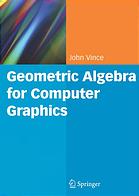

Most ebook files are in PDF format, so you can easily read them using various software such as Foxit Reader or directly on the Google Chrome browser.
Some ebook files are released by publishers in other formats such as .awz, .mobi, .epub, .fb2, etc. You may need to install specific software to read these formats on mobile/PC, such as Calibre.
Please read the tutorial at this link: https://ebookbell.com/faq
We offer FREE conversion to the popular formats you request; however, this may take some time. Therefore, right after payment, please email us, and we will try to provide the service as quickly as possible.
For some exceptional file formats or broken links (if any), please refrain from opening any disputes. Instead, email us first, and we will try to assist within a maximum of 6 hours.
EbookBell Team

4.3
88 reviewsSince its invention, geometric algebra has been applied to various branches of physics such as cosmology and electrodynamics, and is now being embraced by the computer graphics community where it is providing new ways of solving geometric problems. It took over two thousand years to discover this algebra, which uses a simple and consistent notation to describe vectors and their products.
John Vince (best-selling author of a number of books including ‘Geometry for Computer Graphics’ and ‘Vector Analysis for Computer Graphics’) tackles this new subject in his usual inimitable style, and provides an accessible and very readable introduction.
The first five chapters review the algebras of real numbers, complex numbers, vectors, and quaternions and their associated axioms, together with the geometric conventions employed in analytical geometry. As well as putting geometric algebra into its historical context, John Vince provides chapters on Grassmann’s outer product and Clifford’s geometric product, followed by the application of geometric algebra to reflections, rotations, lines, planes and their intersection. The conformal model is also covered, where a 5D Minkowski space provides an unusual platform for unifying the transforms associated with 3D Euclidean space.
Filled with lots of clear examples and useful illustrations, this compact book provides an excellent introduction to geometric algebra for computer graphics.